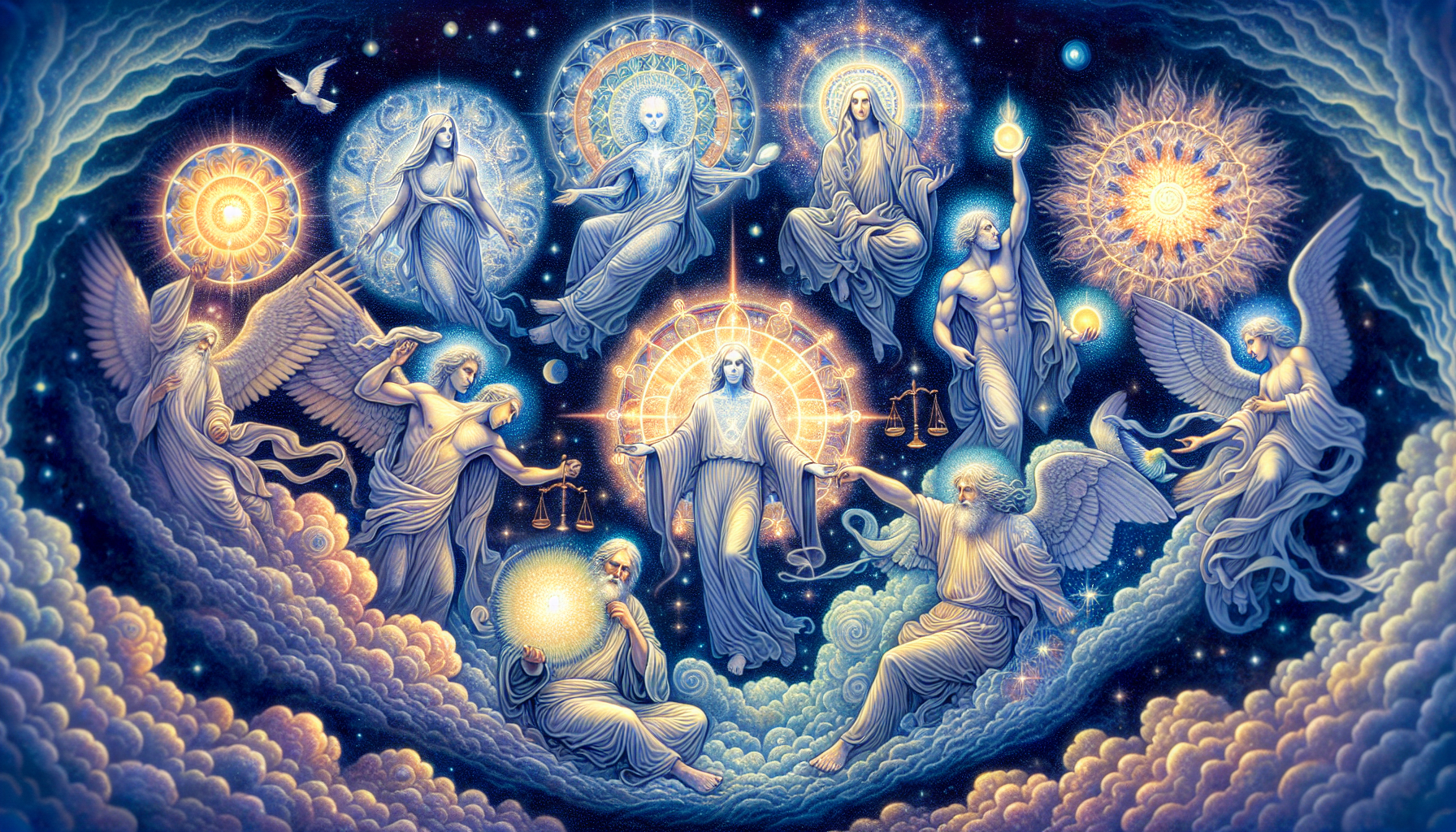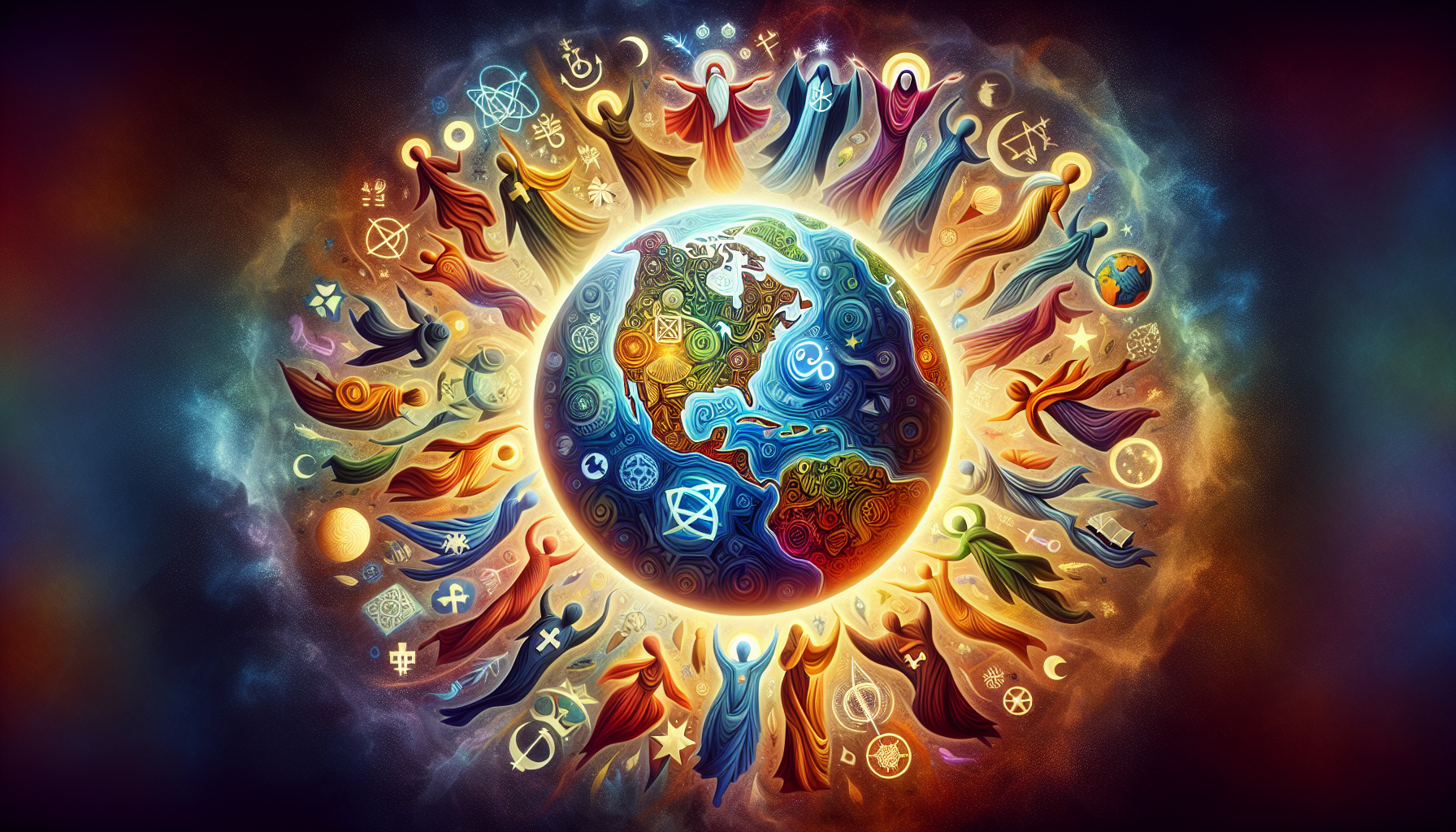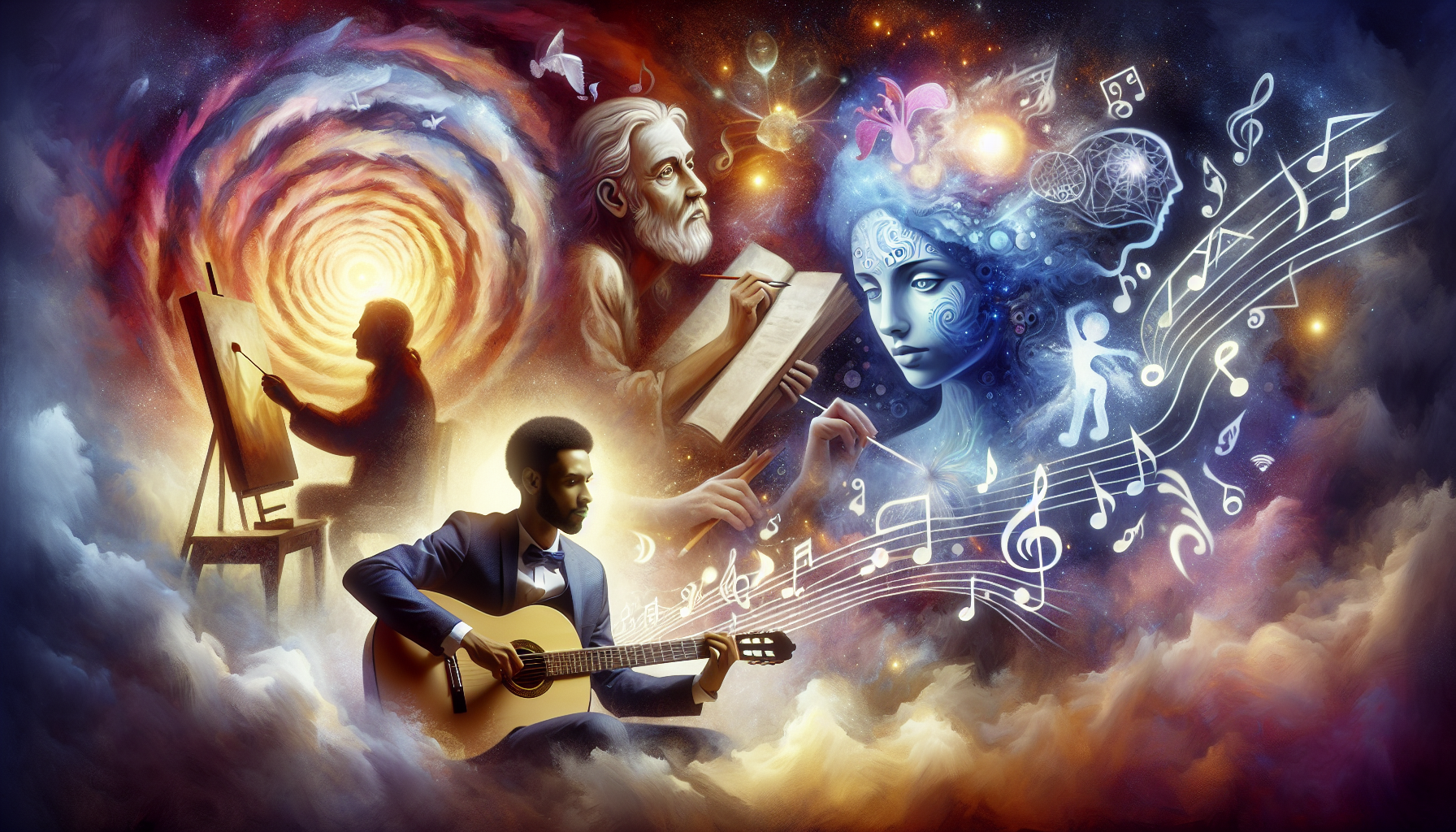Spiritualism? What the heck is that?

Spiritualism... so what does it mean?
Spiritualism refers to a belief in ongoing communication between the living and the dead which is facilitated by mediums. This article examines how spiritualism, rooted in both religious and philosophical worldviews, defines our relationship with the spirit world and impacts our perceptions of life and the afterlife.
Key Takeaways
-
Spiritualism is a religious movement that originated in the 19th century, focusing on communication with spirits through mediums and practices like séances, automatic writing, and mediumship.
-
Mediums serve as essential conduits in spiritualist practices, providing messages and connections between the living and the deceased, often aiding in grief and offering reassurance of an afterlife.
-
Despite skepticism and the challenges of scientific verification, spiritualism continues to impact culture through art, literature, and personal transformative experiences.
Exploring the Essence of Spiritualism

Spiritualism is an intriguing belief system centered around communication with spirits. It’s a tapestry woven with threads of religion, philosophy, and science. The spirit world is not a distant, unreachable realm but an integral part of our reality.
As many spiritualists would affirm, spirits of the dead communicate with the living, and this interaction forms the foundation of modern spiritualism.
The Foundation of My Belief
My journey into spiritualism began at Arthur Findlay College, a beacon of spiritual education in the UK. Here, I honed my intuition, a vital component in spiritual practice. The experiences at this institution have been integral in shaping my personal beliefs and approach to spiritualism.
Spiritualism as a Religious Movement
The spiritualism movement is more than a mere belief system; it’s a religious movement with unique practices and beliefs. It emerged from a farmhouse in Hydesville, New York, in 1848, where communication with a spirit was first claimed. From there, it spread rapidly, particularly in England and France. Spiritualist practices, including:
-
table turning
-
séances
-
automatic writing
-
mediumship
Seances, which often involved communication with disembodied spirits, became a common pastime in Victorian households, demonstrating the widespread fascination with the spirit world during this era.
However, Spiritualism wasn’t embraced by all. It faced opposition and skepticism from religious institutions, including spiritualist churches, and was often associated with witchcraft and necromancy. Despite this, Spiritualism persisted, with organizations like the National Spiritualist Association of Churches forming in the United States after the Civil War.
The Phenomena of the Spirit World
The spiritual world, often referred to as the spirit world, manifests itself in a myriad of ways. Trance mediumship, where the medium enters a trance-like state, is one of the methods through which spirits convey messages. Mediums often receive messages from spirits through sensory experiences that include hearing voices, seeing visions, or feeling physical sensations.
Communicating with the Beyond: Mediumship Explained

Mediumship is the bridge that connects the physical and spiritual realms. Mediums communicate with the spirit world using their bodies as channels, experiencing sensations, images, or sounds attributed to the deceased.
This practice, though subject to skepticism due to its intangible nature, holds significant value for those seeking a deeper connection with the spirit world through spiritualistic practices.
My Journey into Mediumship
My initial encounters with spirits were unexpected and transformative. These experiences led me on a path of learning how to communicate with the spirit world, developing my mediumship abilities.
Moments of intense spiritual seeking resulted in transformative experiences perceived as direct interactions with spiritual beings or spiritual manifestations of a divine presence.
The Role of Mediums in Spiritualist Practices
Mediums play a crucial role in spiritualist practices, acting as intermediaries between the living and deceased. They often provide comfort and closure to those grieving, channeling messages from the other side. The role of a medium is not just about communication; it’s about providing reassurance and a sense of connection to a realm beyond our physical world.
The Spiritualist Philosophy and Its Principles

At the heart of spiritualism lies a philosophy described by its Seven Principles. Central to many spiritual traditions within Spiritualism is the experience of connecting with a greater reality, which may include nature, the cosmos, or a divine realm.
Spiritualism places great emphasis on personal responsibility, highlighting the importance of being accountable for one’s own thoughts, words, and actions in relation to the human soul. A true spiritualist understands this and strives to live by these principles.
The Seven Tenets of Modern Spiritualism
The Seven Principles form the moral compass of Spiritualism, received through Emma Hardinge Britten's mediumship experience. These principles promote compassion, kindness, and love, indicating a commitment to empathetic and virtuous living.
The principles also include the ideals of justice, the merits of free will, and the law of cause and effect, ensuring compensation and retribution for one’s actions. They highlight the importance of personal autonomy, respect for others’ freedoms, and the encouragement to rectify mistakes.
Ethical and Moral Considerations
The ethical implications of spiritualism are profound. Spiritualists believe that spirits continue to exist in a realm intertwined with our own, where they retain moral accountability for their actions. This belief suggests that recognizing continuous moral responsibilities after death leads individuals to adopt better behaviors in their current lives.
Intersecting Worlds: Spiritualism Among Other Religions

Spiritualism, with its unique practices and beliefs, intersects intriguingly with other religions. This intersection allows for syncretism and unique interpretations of beliefs and practices. Unlike mainstream religions, Spiritualism lacks an extensive theology and does not have a global presence or ancient traditions, setting it apart as a newer movement.
Spiritualism vs. Mainstream Religious Views
Spiritualism diverges from traditional religious views by:
-
Lacking standardized doctrine or dogma
-
Encouraging a broad spectrum of individual beliefs and interpretations
-
Having a distinct approach to the afterlife and the act of communicating with the deceased
This sets it apart from orthodox religious doctrines.
Syncretism: When Spiritualism Meets Other Faiths
Spiritualism is inclusive and open to syncretism with varied religious practices and beliefs. It has adopted elements from Eastern philosophies and united with Western esoteric traditions, creating unique, syncretic practices.
The Scientific Scrutiny of Spiritualism
Spiritualism’s claims and practices invite scientific scrutiny. It has faced criticism for cases of deliberate fakery but has also seen the emergence of psychic research, aiming to investigate the claims of mediums and the possibility of spirit contact. Despite the controversy, the existence of genuine mediums is suggested to remain unaffected by fraudulent practices.
Seeking Proof of the Afterlife
Over the years, various scientific experiments with mediums and psychics have attempted to gather empirical evidence for the existence of spirits and an afterlife, exploring psychic phenomena. Even great minds like Thomas Edison showed interest in this realm, contemplating the creation of a ‘spirit phone’.
My Perspective on Science and Spiritualism
In the ever-evolving discussions about religion and spirituality, I, as an ardent spiritualist, believe in continuous questioning and exploration. With each encounter with the spirit realm, my understanding deepens, further affirming my spiritualist perspective and connection to the infinite intelligence.
The Impact of Spiritualism on Society and Culture

Spiritualism has left a significant imprint on society and culture, influencing art, music, and literature. It has allowed individuals to express their spiritual beliefs and practices and has had a significant influence on various forms of art and literature, affecting the way supernatural themes are portrayed and interpreted.
Spiritualism in Historical Context
The origins of modern spiritualism trace back to the Fox sisters in 1848, who claimed they could communicate with the dead. Spiritualism reached its peak from the 1840s to World War II, often gaining popularity during times of widespread mortality.
Despite the Fox sisters later admitting their spirit communications were a hoax, spiritualism’s cultural appeal ensured its growth and endurance. Over time, spiritualism has persisted and adapted, maintaining its presence in contemporary spiritual practices.
Spiritualism's Cultural Resonance
Spiritualism has resonated with the wider culture, influencing various forms of art and literature. Famed author Arthur Conan Doyle, for instance, was a staunch advocate for spiritualism.
The movement has also influenced art, as seen in the works of Hilma af Klint, who was deeply influenced by her involvement in spiritualism. Spiritualism even found a place in the White House during the American Civil War, with séances being held there, highlighting its widespread cultural acceptance.
Personal Encounters with the Spirit Realm
Personal encounters with spirits are the heart and soul of spiritualism. Direct experiences serve as the most convincing proof of the spirit realm’s existence. These experiences can be profoundly transformative, leading to increased self-awareness and shifts in life perspective.
Messages from the Other Side
My first encounters with the spirit world and spirit entities involved a process of ‘tuning in,’ which can involve various sensory experiences like listening, sensing, or seeing spirits and symbols.
Lessons Learned from the Spirits
Spirit communication is not just about messages; it offers lessons that can lead to profound personal transformations. These lessons provide insights into life’s challenges, deliver healing messages, and sometimes contain prophetic information about the future.
Insights from interactions with spirits can:
-
Prompt reevaluation of personal values and life goals
-
Result in a new sense of purpose or direction
-
Lead to a deeper connection with the metaphysical realm
-
Enrich understanding of the afterlife
These experiences have a lasting impact on individuals.
Summary
In conclusion, spiritualism is a fascinating belief system that intertwines with our understanding of life, death, and what lies beyond. It’s a journey of personal transformation, continuous questioning, and deep connections beyond the physical realm.
Frequently Asked Questions
What is spiritualism?
Spiritualism is a belief system that holds the belief in the ability of spirits of the dead to communicate with the living, usually through a medium. This can provide comfort and guidance for those seeking connection with loved ones who have passed away.
How did you get into spiritualism?
I got into spiritualism by honing my intuition and developing spiritual beliefs at Arthur Findlay College. It's been quite an eye-opening journey!
What is the role of a medium in spiritualism?
The role of a medium in spiritualism is to act as an intermediary between the living and the deceased, channeling messages from the other side.
What are the Seven Principles of spiritualism?
The Seven Principles of spiritualism serve as a moral compass, emphasizing compassion, kindness, and love in practice.
How has spiritualism influenced society and culture?
Spiritualism has significantly impacted society and culture, influencing various forms of art, music, and literature.





